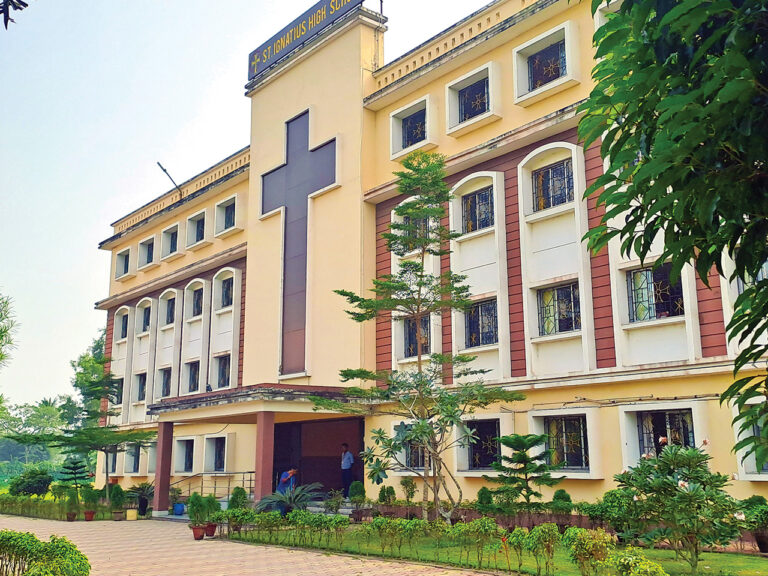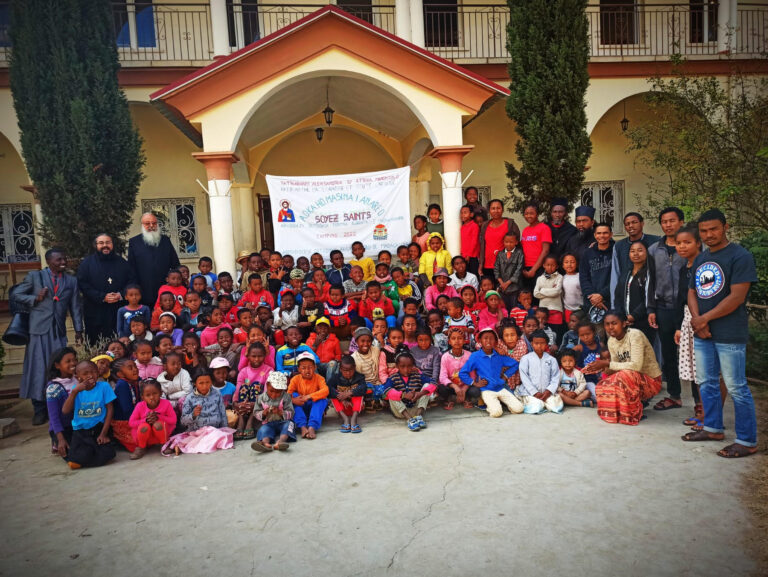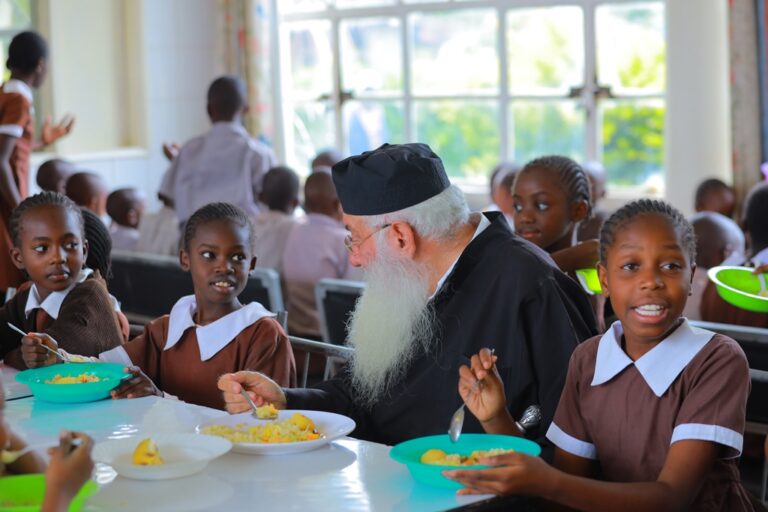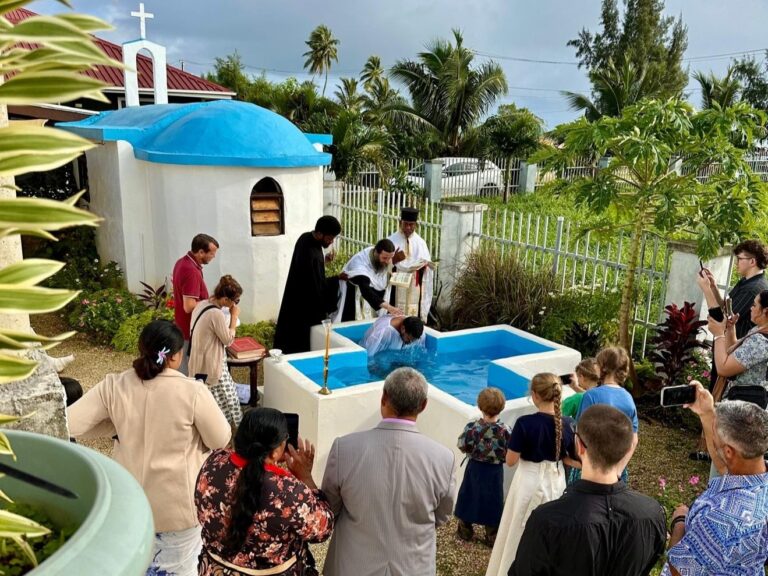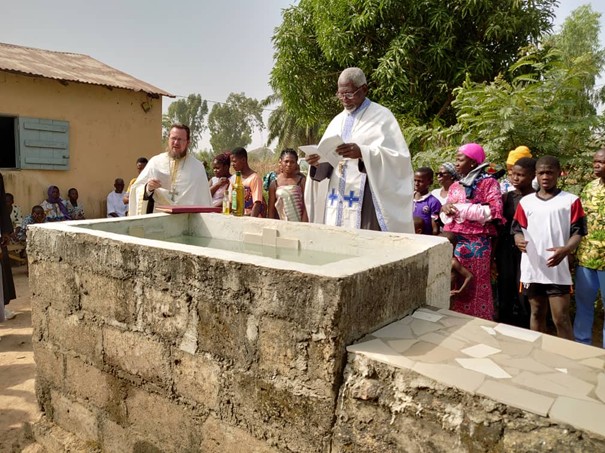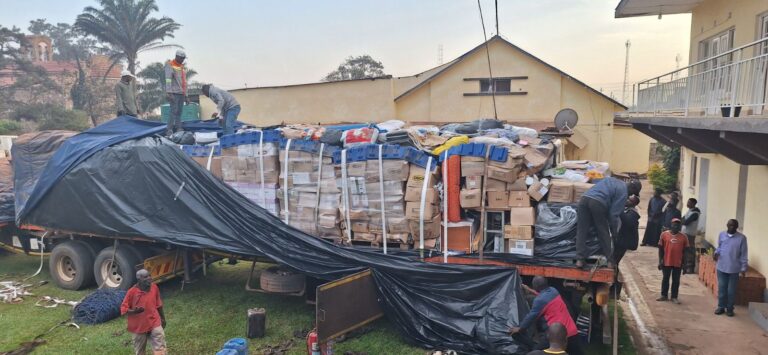Mission in the embrace of the Congo jungle
From the capital Brazzaville we departed by plane on the 27th of November. After an hour and ten minute flight over the vast Congolese jungle, we landed at the modern airport of Impfondo, next to the big river. I enjoyed our small parish at Mass the next day and the endless questions the faithful ask about faith and the Church. On Monday, November 29, we went down to the river at the edge of the harbor with the descendants. A large pirogue tied up, a 12-foot, single-trunked, dug-out coarse log, gave us the opportunity to get close to the slightly deeper water. Other monohulls passed in front of us with fishermen carrying the morning catch. The fish are tasty and cheap, a consolation in their poverty. My own preference is Nzanda, a thick tasty fish with few bones, resembling a cod.
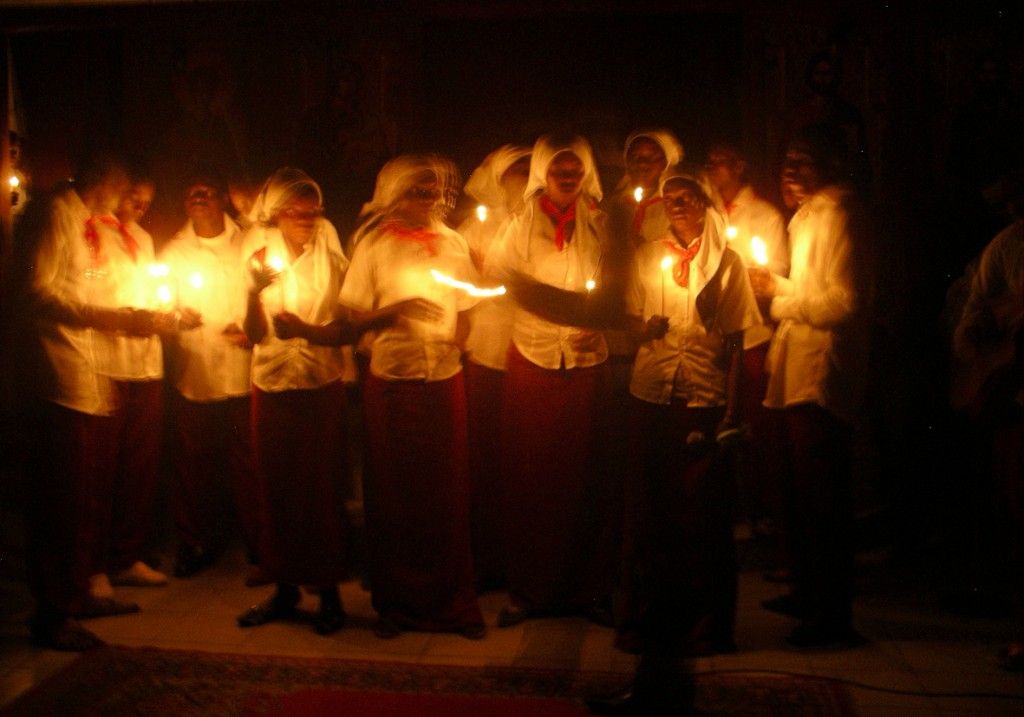
The Ubangi, the great river, again received the blessing of the Jordan and was sanctified, so that from its waters our thirteen newly-converted brethren could come forth as angels of light. The baptism took place as a teaching, slowly and beautifully, so that the Holy Spirit might speak to the souls of all of us. It was not easy to hide their joy, which became a celebration on the return, a celebration also in the afternoon when two newly-converted couples were crowned, a celebration after their first communion at Mass the next day, the feast of St. Andrew. My youthful patron Apostle Apostle gave me a beautiful gift on his feast. My flight was cancelled and so he gave me a beautiful week in Impfondo. I love to walk along the Ubangi River at dawn, when the marvellous waters from first light ripple gently from the silent passage of the pirogue. It is where women gather early in the morning, to return home quickly with fish in their bags for their large families or with a small crocodile by their side, as I was surprised to see one morning. Soon the sun rises over the jungle on the opposite bank (of the Zaire) to dry the wet land from the torrential night rain. From there many refugees from the civil wars, both Rwandans and Zaireans, have come, taking refuge in the city. After Mass in the rented house that hosts our parish, I headed with Mario and Joachim, our readers, to the Pygmy neighborhood. On the asphalt road we were passed by a herd of humpbacked oxen that provide meat for the locals. In the alleys poor people were working in the mud to grease their thatched bamboo huts, and beside them others were sewing rows of leaves which they superimpose on the roofs to ward off rainwater, and call them “tiles.” Some fence their yard with cacti pruned beautifully. We arrived at the settlement of Pygmies at the edge of the forest. They are a tribe of low people, with proportionally long arms, who live nomadically in the forests and are engaged in hunting. They are hard-working and diligently render service to others. We found women and children engaged in their household chores. They were pleased with the photos I gave them, from a previous visit, and accepted our invitation to meet at our place of worship. They began to come there in the following days and with reverence and quietness began to pray. Joachim, who knew their language, began to explain our faith to them. I personally repeated to them “Nakéle Nakutá” (:see you again tomorrow) and they continued to come. They became familiar to us. Pray that they will soon become intimate with God.
Monk Theologian

